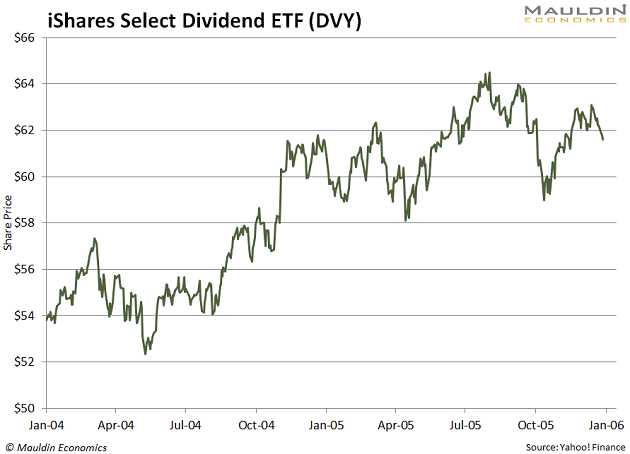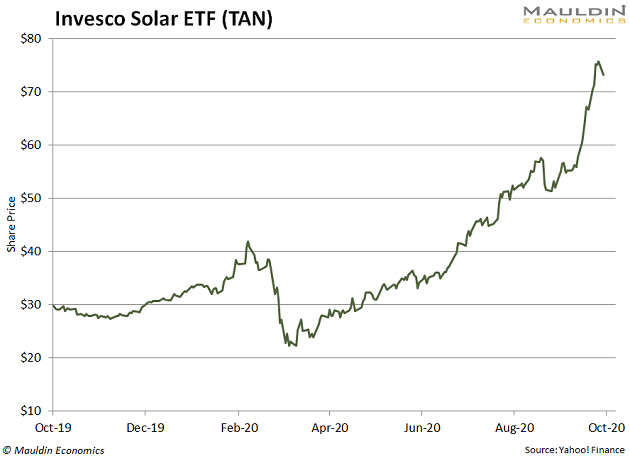Election Positioning
This must be the most overanalyzed election of all time, and I will be glad when it is over.
Five months ago, people thought that Biden would be bad for stocks, because, well, higher taxes. This seemed reasonable—every other election in recent history had an effect on markets due to projected changes in tax policy.
Remember 2004? The stock market thought that John Kerry would raise taxes on dividends. When Bush won, dividend stocks were off to the races.

Today, people think that Biden will be good for stocks, because of stimulus and infrastructure spending. Everyone is talking about how a “blue wave” is good for stocks, having given up on the short thesis due to taxes.
Here’s an alternative take: maybe Trump or Biden winning is good for stocks. Maybe getting the election out of the way is good for stocks. Maybe stocks rally no matter what happens.
This is the type of game theory that I used to enjoy but no longer do. As I told my Daily Dirtnap subscribers, we are going into this mostly unhedged. The hedges are all too expensive, anyway.
These things are always obvious in hindsight. The 2016 election was incredibly obvious in hindsight. But in the months leading up to it, we did the same game theory simulations. And, at the end of the day, nobody got it right.
Nobody is going to get this right, either. Anyone who says they know with certainty what is going to happen is suffering from overconfidence or is a charlatan. Or both.
Maybe nothing happens! Maybe the stock market is unch after the election.
Ultimately, this comes down to an exercise in risk management. There are stocks that will clearly do well if Biden wins, and there are stocks that will clearly do well if Trump wins. Own a little bit of both. Own some bonds, some gold, and some real estate.
Efforts to get on the right side of this trade will probably result in being on the wrong side of this trade. This may seem like a nihilistic approach, but my experience is that the more people are looking at an opportunity, the less of an opportunity it is.
This is one of the reasons you want access to opportunities that only an elite group of investors are looking at, like the ones our VIP members get here at Mauldin Economics.
Taxes
If Biden wins, taxes are going up.
Biden has a tax plan, which we’ve talked about before. Kamala Harris also has a tax plan, which involves a top marginal rate of 70% and some funny business with payroll taxes. But neither of those tax plans is likely to be passed in its current form.
Trump has said that he will lower taxes, but he’s offered no specifics.
The trend in tax policy is toward increasing progressivity, the idea that rich people pay more than poor people. The tax code has become increasingly progressive since 1988 when there were only two tax brackets:
- One bracket at 15%, for incomes up to $29,750, and
- Another bracket at 28%, for incomes over $29,750.
In today’s dollars, $29,750 is about $62,000. I would like to go back to those days.
My quibble with our current system of taxation is not the absolute level of rates; it’s the progressivity. And it’s not so much that people are paying a lot on the high end—it’s also that people aren’t paying very much on the low end.
As you travel around Europe, taxes are high, for sure. But on the low end, they are not especially low. Everyone pays. Everyone has skin in the game.
We can argue about the economic effects of people on the low end paying more, and we can argue about the morality of it. But as it stands, people with lower incomes do not have much of a financial stake in what goes on in this country.
The problem is that, regardless of whether Biden or Trump wins, you can bet the tax code will become even more progressive.
This is bad for democracy.
Many years ago, Dennis Gartman observed that fewer and fewer people had any tax liability at all—a number approaching 50%. What would happen, he asked, if the people in the bottom 50% could vote higher taxes on the top 50%?
We are there.
Although that’s not what’s happening—this election is split on income and education, but in reverse. Counterintuitively, people with lower incomes are not voting for higher taxes—it’s the people with higher incomes. It’s an urban legend that rich people tend to vote Republican—they really don’t, especially not now.
Biden Is Priced In
Whatever you believe about the accuracy of the polls, and people are a little gun-shy after 2016, I firmly believe that stocks are pricing in a Biden victory.
Look at the Invesco Solar ETF (TAN). It would not be shooting up if Trump were priced in. The fund is frontrunning a lot of spending on climate change initiatives, which Biden has pledged $2 trillion toward.

If Biden is priced in, and Biden wins, the stock market is unlikely to do much. In fact, there may be a “sell the news” event, which is usually what happens after everyone piles into a trade.
If Trump wins, it will take the market by surprise, much like what happened in 2016. And if the election is contested in any way, I doubt it will create much market turmoil, as everyone seems to be hedged for that possibility.
I’ve traded through five elections, and you cannot draw any generalizations from any of them. All you can do is plan for asymmetry in positioning.
It’s like betting on horses—you can bet on the long shot, and it’s fun, but you won’t win very often. Or you can bet on the favorite, which is boring, and you won’t win very much, but you’ll win more often.
Regardless of who wins the election, there’s always money to be made, and you can do that by betting right.
Disclaimer: The Mauldin Economics website, Yield Shark, Thoughts from the Frontline, Patrick Cox’s Tech Digest, Outside the Box, Over My Shoulder, World Money Analyst, Street Freak, Just One ...
more


